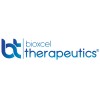Study of BXCL501 In Agitation Associated With Delirium in ICU Patients
Agitation, Delirium

About this trial
This is an interventional treatment trial for Agitation
Eligibility Criteria
Inclusion Criteria:
Inclusion Criteria for Enrollment (Informed Consent):
- ICU admitted male and female patients, ≥ 18 years, COVID 19 (+) and (-)
Subject or legally appointed representative (LAR) able to read, understand and provide informed consent, or to provide assent
Inclusion Criteria for Randomization:
- Positive CAM-ICU
- RASS score ≥ +1
- Subject judged to be likely capable of self-administration
Exclusion Criteria:
- Clinically significant ECG changes, brady- and tachyarrhythmias, QTc prolongation
- Hepatic dysfunction
- Pregnancy
- Known allergy to Dexmedetomidine or Haloperidol.
Sites / Locations
- BioXcel Clinical Research Site
Arms of the Study
Arm 1
Arm 2
Arm 3
Arm 4
Experimental
Experimental
Experimental
Experimental
Cohort 1- 120 Micrograms
Cohort 2- 180 Micrograms
Cohort 3- 240 Micrograms
Cohort 4- 300 Micrograms
120 Micrograms film or Placebo film are given to patients in 3:1 ratio respectively. Repeat doses may be administered in increments of 120 μg every 3 to 6 hours post first dose (StartD) only if the RASS score remains ≥ +1. For subjects 65 years and older, repeat doses may start in increments of 60 μg every 3 to 6 hours post first dose only if RASS is still ≥+1.
180 Micrograms film or Placebo film are given to patients in 3:1 ratio respectively. Repeat doses may be administered in increments of 120 μg every 3 to 6 hours post first dose (StartD) only if the RASS score remains ≥ +1. For subjects 65 years and older, repeat doses may start in increments of 60 μg every 3 to 6 hours post first dose only if RASS is still ≥+1.
Two 120 Micrograms films or two Placebo films are given to patients in 3:1 ratio respectively. Repeat doses may be administered in increments of 120 μg every 3 to 6 hours post first dose (StartD) only if the RASS score remains ≥ +1. For subjects 65 years and older, repeat doses may start in increments of 60 μg every 3 to 6 hours post first dose only if RASS is still ≥+1.
One 120 Micrograms film and one 180 Micrograms film or two Placebo films are given to patients in 3:1 ratio respectively. Repeat doses may be administered in increments of 120 μg every 3 to 6 hours post first dose (StartD) only if the RASS score remains ≥ +1. For subjects 65 years and older, repeat doses may start in increments of 60 μg every 3 to 6 hours post first dose only if RASS is still ≥+1.
Outcomes
Primary Outcome Measures
Secondary Outcome Measures
Full Information
1. Study Identification
2. Study Status
3. Sponsor/Collaborators
4. Oversight
5. Study Description
6. Conditions and Keywords
7. Study Design
8. Arms, Groups, and Interventions
10. Eligibility
12. IPD Sharing Statement
Learn more about this trial
